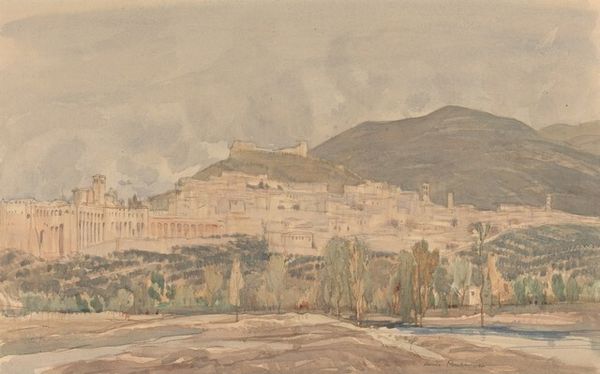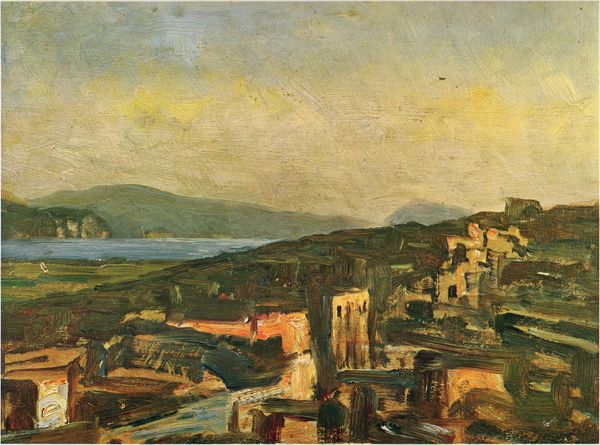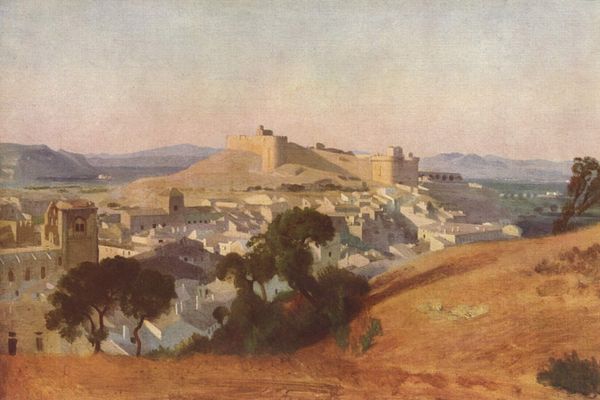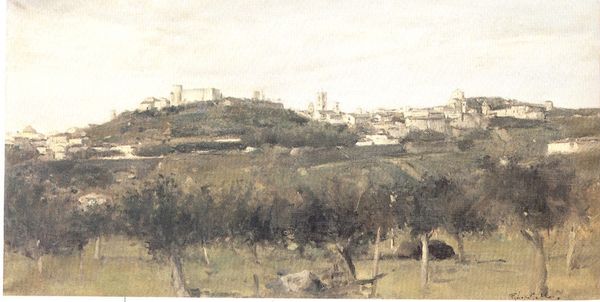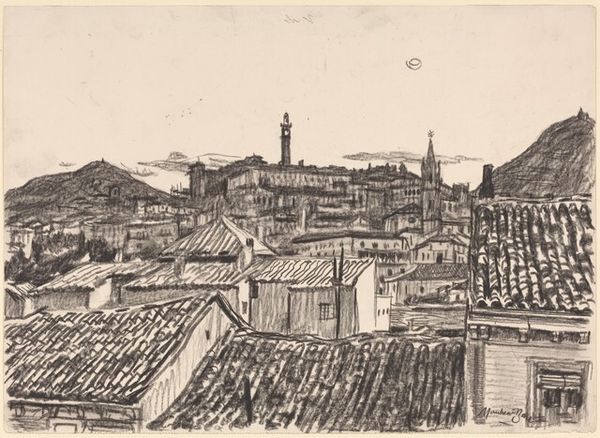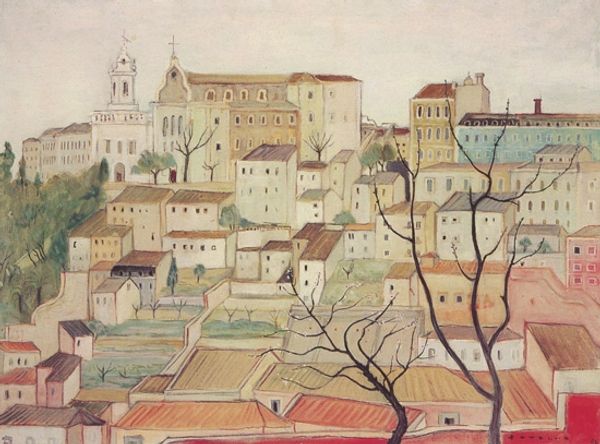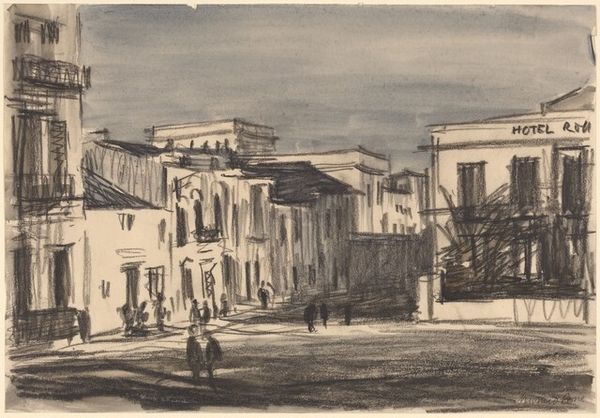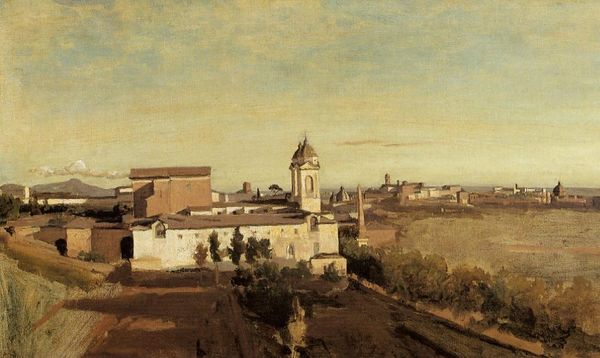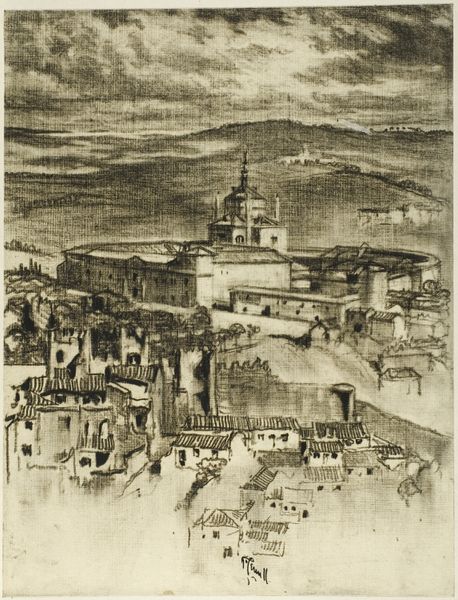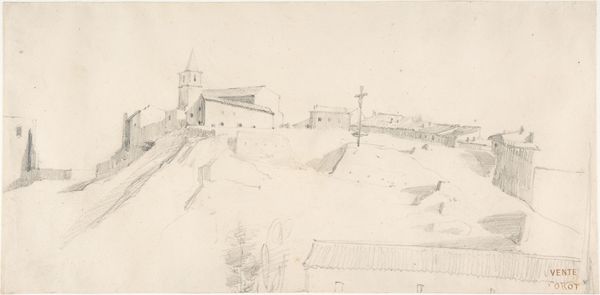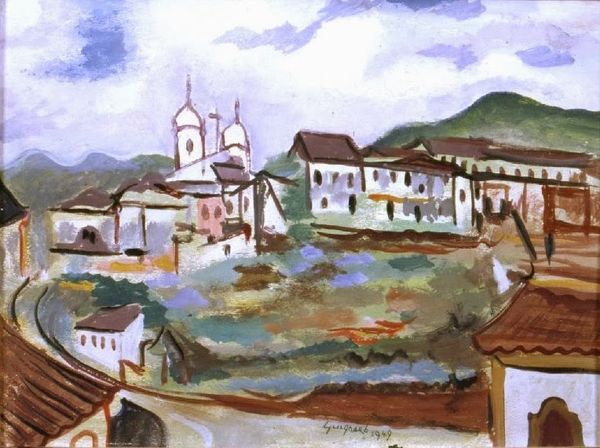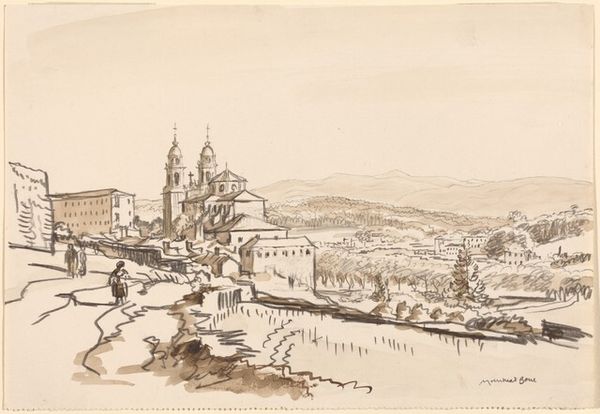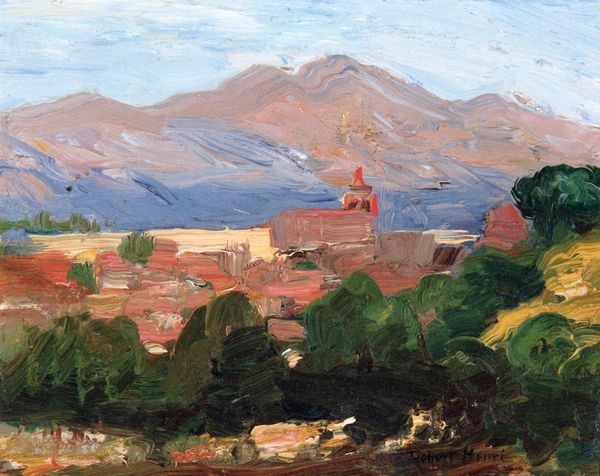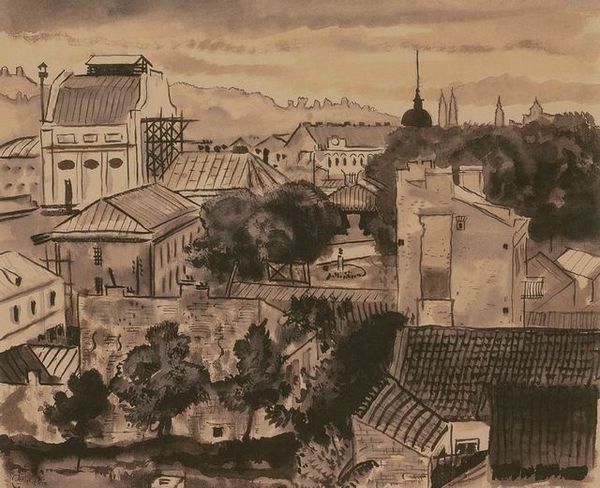
#
glasgow-school
Copyright: Public Domain: Artvee
Curator: I’m struck immediately by the pervasive gloominess, that almost monochromatic palette... it feels incredibly still and quiet, wouldn't you say? Like time itself is holding its breath. Editor: Absolutely. We're looking at "Moonlight, Tetuan, Morocco," painted in 1911 by Sir John Lavery, who worked in that very particular late Impressionist style. The subject is this stunning, evocative cityscape rendered in oils. Curator: It’s interesting he called it moonlight, because it's not how you typically imagine moonlight. I see this smoky veil more than silvery brightness. There's a subdued drama about it though, you know? It is somehow compelling... Editor: Yes, that tonal harmony almost makes the moon, whatever its light, become symbolic of the artist’s internalized Orient. Orientalism was, after all, not simply about depicting a place, but also the Western gaze on that place. Lavery may not have intentionally done that of course. Curator: That’s an interesting point, how even a nocturne like this can be caught up in bigger questions about perspective. It feels honest though – he's not giving us exotic clichés; the scene looks genuine, observed and somehow felt. Editor: Lavery traveled to Morocco with his family. This work does speak volumes about a specific historical context, but there is a dialogue between authenticity and aestheticization at play here too. How does any Westerner truly see an "other" place and culture? It always runs through a lens, doesn't it? Curator: I'm always trying to imagine him painting this. It's open-air, plein air; must have been cold, perhaps challenging… Yet the result has this incredibly fragile touch. You almost expect it to dissipate before your eyes, like fog lifting off the city. Editor: The brushstrokes contribute greatly to that feeling—they’re very loose and broken. It certainly speaks of its era. Curator: What do you take away as a final thought from looking at this? Editor: "Moonlight, Tetuan, Morocco" remains a study in the complexities of representation, perception, and power – as relevant today as it was then. Curator: I'd just say the man had a fantastic knack for mood. It just gets under your skin somehow.
Comments
No comments
Be the first to comment and join the conversation on the ultimate creative platform.
